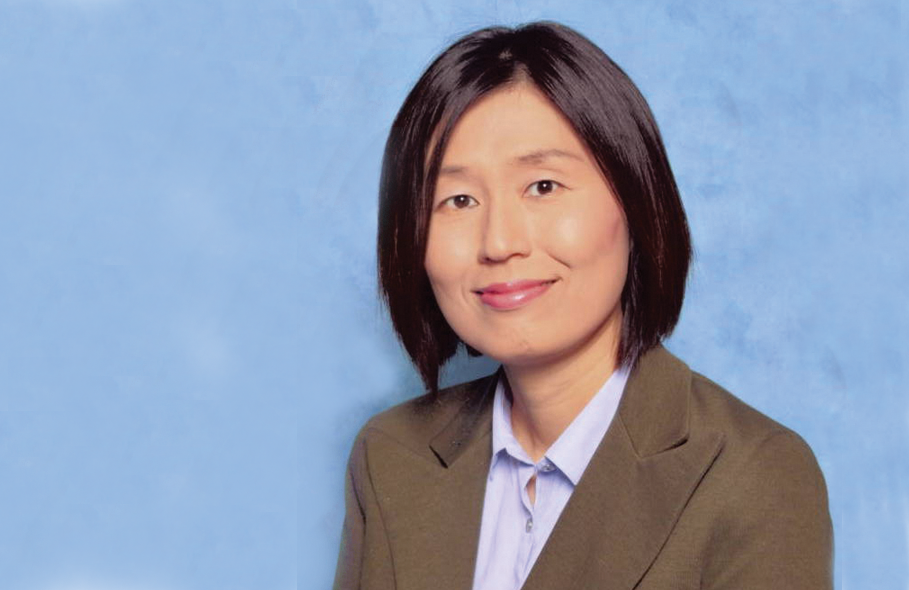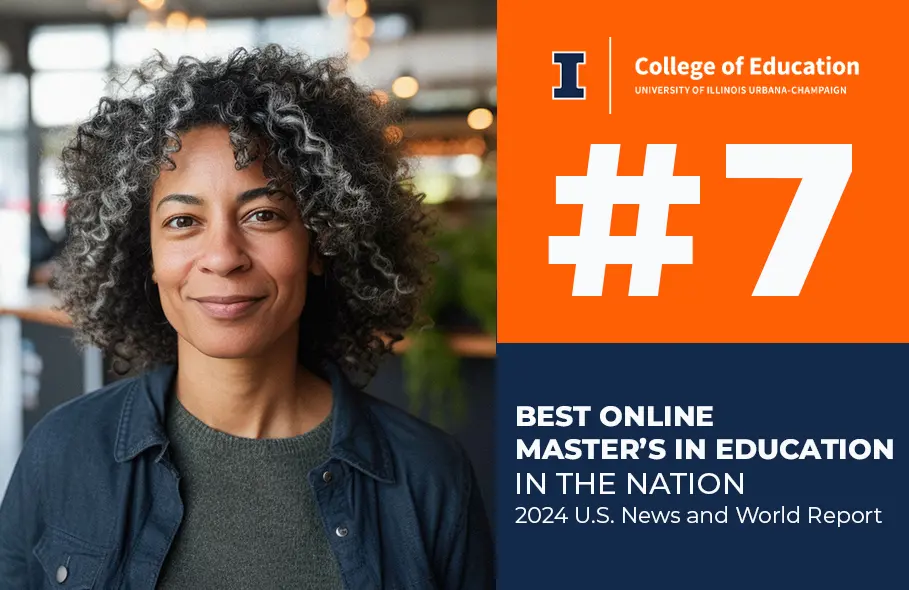How to Help Graduate Students Successfully Engage With Their Online Degree Program
by Tom Hanlon / Feb 28, 2024

With all its academic rigor, graduate school is challenging enough.
It can be even more challenging when you are juggling family and work responsibilities while being enrolled in a fully online master’s or doctoral program.
Hyun Kang explored those challenges in a recent study, culminating in a paper published in The American Journal of Distance Education.
Unique Challenges for Online Students
“It’s really important to understand the complexity of the unique experiences and challenges encountered by this group of students so that we can provide the most updated and sustainable support for our students coming from diverse backgrounds and circumstances,” says Kang, an associate professor in Education Policy, Organization and Leadership in the College of Education.
Kang’s paper—which she coauthored with Yoon Pak, head of EPOL—examined the nature of students’ emotional, social, and academic engagement with their fully online Ed.D. and Ed.M. programs. The study involved 83 graduate students, 63 of them in doctoral programs. All 83 students were enrolled in various concentration programs offered in EPOL and were currently working and making a positive difference in the education field.
“They are physically, and sometimes emotionally, thousands of miles away from the institution, from classrooms and professors and classmates,” Kang says. “This is a challenge for students and also sometimes for faculty members as well.”
Because of the physical and emotional separation, they often don’t feel part of the academic culture, Kang notes. “It’s another layer of challenge, being socialized into the culture of higher education, especially because many of them come back to school after years of working and having families,” she says. “They’re going to classes and doing assignments in the middle of their busy professional lives. It’s a difficult transition.”
Closing the Gaps
Kang has been working with online students since she came to EPOL four years ago. That work piqued her interest in the unique engagement issues encountered by nontraditional, online students.
To close the physical, emotional, and academic gaps that she has witnessed in online graduate students, Kang makes sure that she makes herself readily available to her students, through email or other channels of communication.
“Responding quickly can help to address the unique challenges experienced by these students,” she says. Other practical applications for faculty and staff working with such students include “creating online events or activities on a regular basis. It could be just check-ins, or it could be covering some practical aspects of the graduate program, like how to search for a new position, how to polish your CV, or how to do a literature review, taking advantage of the amazing library resources from a distance.”
Frequent, regular, sustainable interaction opportunities and activities can help students feel connected and eventually engaged, Kang adds. To that end, EPOL offers synchronous classes for their online degree programs, unlike other online programs or institutions.
“Small group activities and discussions can help them feel that connection they need,” Kang says, though she adds that she has learned not to require synchronous class attendance. “It’s great to have those interactions, but at the end of the day it might be a source of stress for them because of their other competing responsibilities,” she explains. “And our data demonstrated that the frequency of a student’s class attendance was not really directly related to the level or the degree of their perceived social engagement.”
The three areas of engagement they uncovered in their study—emotional, social, and academic—are not mutually exclusive.
“They all intersect with one another,” Kang says, working together to help students stay connected, stay on task, and successfully complete their program.
Online Degree Programs Are Here to Stay
Before this study, little was known about student engagement in online graduate degree programs. “Our study has helped to expand the understanding of student engagement,” Kang says, particularly in identifying and exploring the three overarching types of engagement that impact students’ experience and success.
“Hyun Kang brings a wealth of methodological expertise to analyze the effectiveness of online graduate programs, such as the ones we offer in the College, and to know from students’ perspectives the strengths and challenges within online learning environments,” Yoon Pak says. “As we still adjust to teaching and learning ‘post’-pandemic, how we engage our students will be paramount.”
Online degree programs are relatively new in higher education, Kang notes. “But, ready or not, they’re here to stay. It’s important for faculty to be prepared, to be educated about the significance of online learning in higher education. At this point, it’s not about whether or not online degree programs are coming; it’s about how we can do them better and sustain ways of educating our students over time.”
In fact, there has been some discussion about one day offering online programs to undergraduates as well.
“At the moment, our department is focused on online graduate programs, but expanding to undergraduates would help us broaden the participation of students from different, often marginalized, backgrounds,” Kang says.
